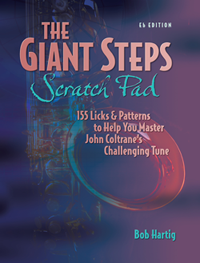My earliest encounter with Sonny Stitt was through a live performance album that featured Sonny on alto, Miles on trumpet, and Stan Getz on tenor. That was back in my college days, and at the time, I couldn”t detect a difference between Stitt and Bird. Both had a blazing technique, and both had a phenomenal command of bebop.
Today, of course, the differences are instantly discernible. Bird was simply nonpareil. His rhythmic approach was considerably more sophisticated than Stitt”s; his vocabulary was broader; his technique, more facile; his overall conception, more inventive.
But that is hardly to diminish Stitt. I am, after all, comparing him to Charlie Parker, and if Stitt stands in the shadow of Bird, he nevertheless stands dauntingly tall. Sonny Stitt was a monster of bebop, and when I listen to him today, my admiration for his playing remains as strong as ever.
Lately, I’ve been listening to a CD called Sonny Stitt: Just In Case Your Forgot How Bad He Really Was. The title is an apt one. The venue is once again a live performance, or possibly a couple live performances, featuring such other sax notables as Richie Cole and John Handy. Stitt plays both alto and tenor, and he shines on each.
Sonny’s quicksilver technique allowed him to execute the fastest passages with precision and conviction. He loved to play in double-time, and he typically outshone most other sax players at it. On this CD, the opening tune, a blues, spotlights Sonny’s penchant for high velocity playing. Following a riff-style blues head, Stitt, the sole horn man, charges into his solo with the aggressiveness of a heavyweight boxer on meth. The mode is double-time from the get-go–inventive, impeccable, a bebop tour de force a la Stitt. You just can”t ask for better.
I hadn’t listened to Sonny for quite a while, so it’s nice to return for a reminder of “how bad he really was.” He was the baddest! He was also accessible. He”s fun to play along with, and to absorb as best I can. Not that I”ll ever sound like Sonny–not that I would ever want to; I want my own language. But when it comes to a mentor in bebop, Sonny is hard to beat and well worth emulating. The man knew a huge number of tunes, and he knew them well. He also knew his horn inside out, and he had a solid command of the building blocks of music. To listen to him analytically is to sit at the feet of a true jazz master. If you at all aspire to excellence on the saxophone, don’t–do NOT–pass him up. Listen, be amazed, learn, and grow.


[…] Sonny Stitt. […]